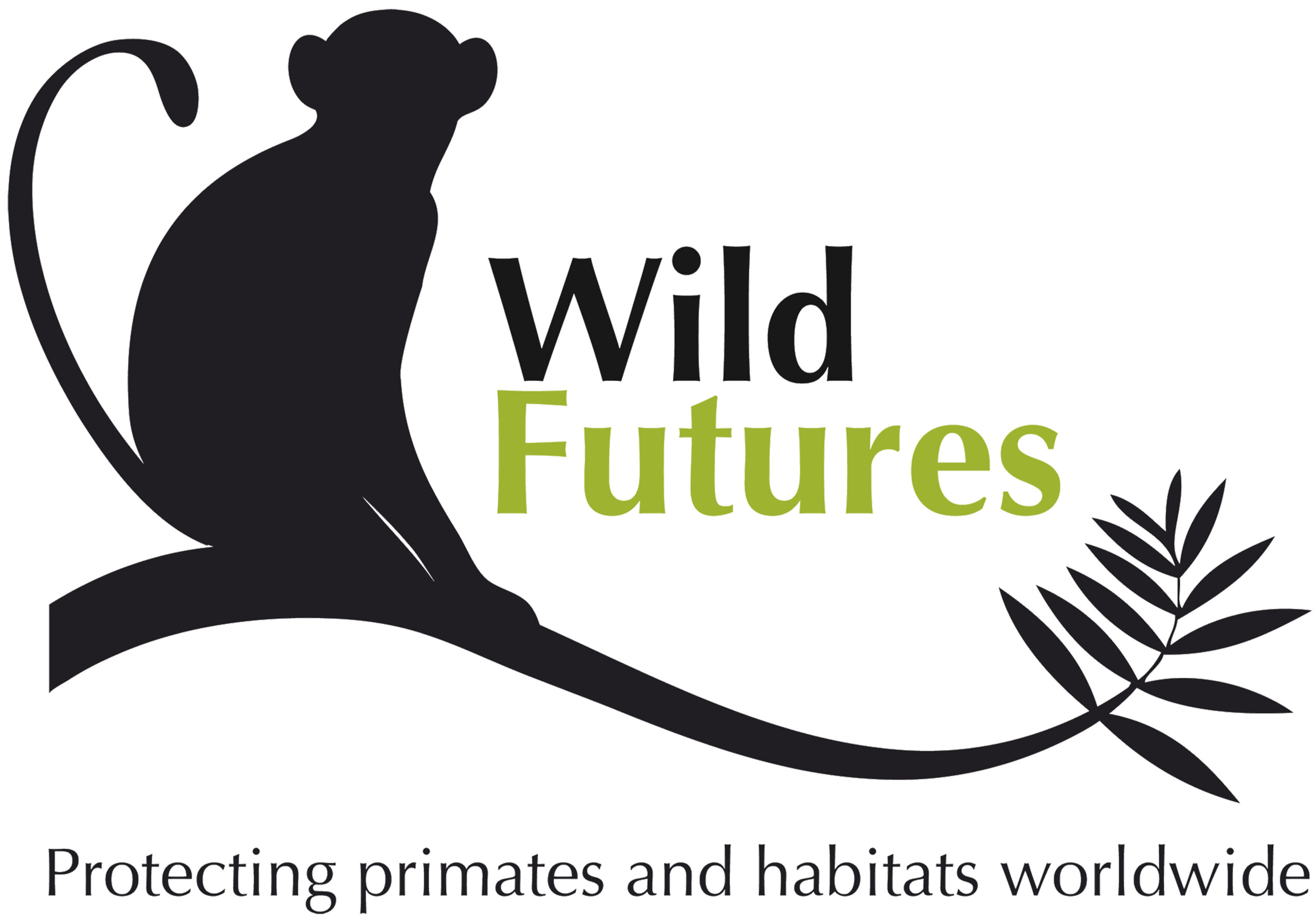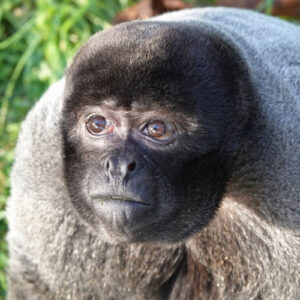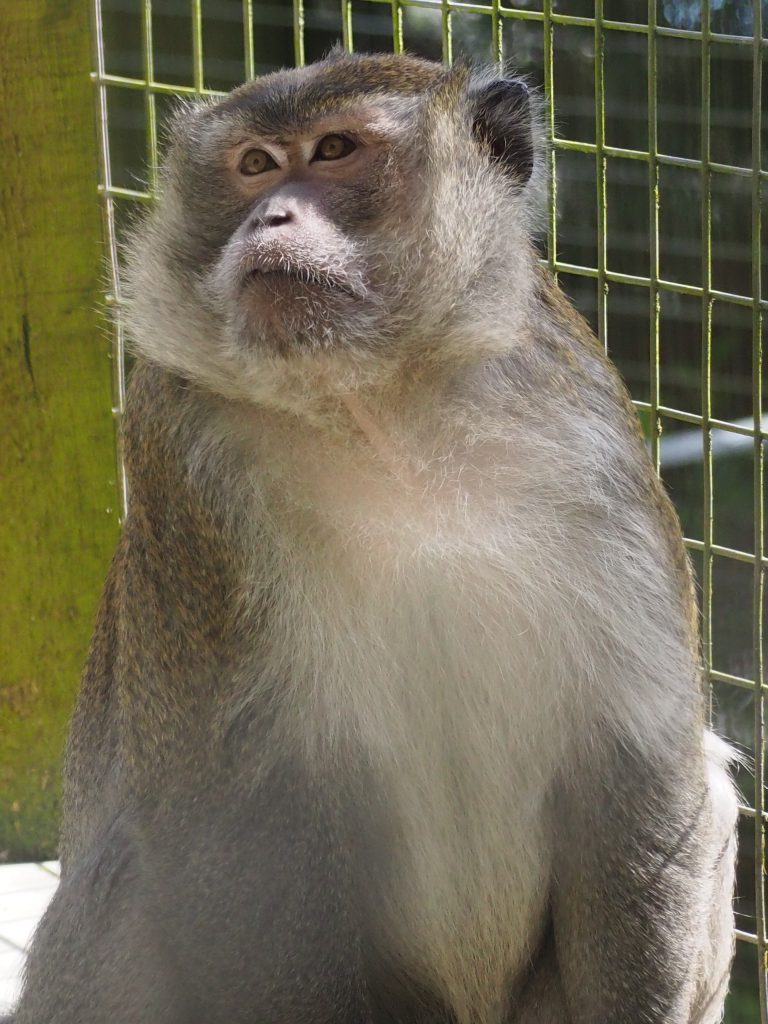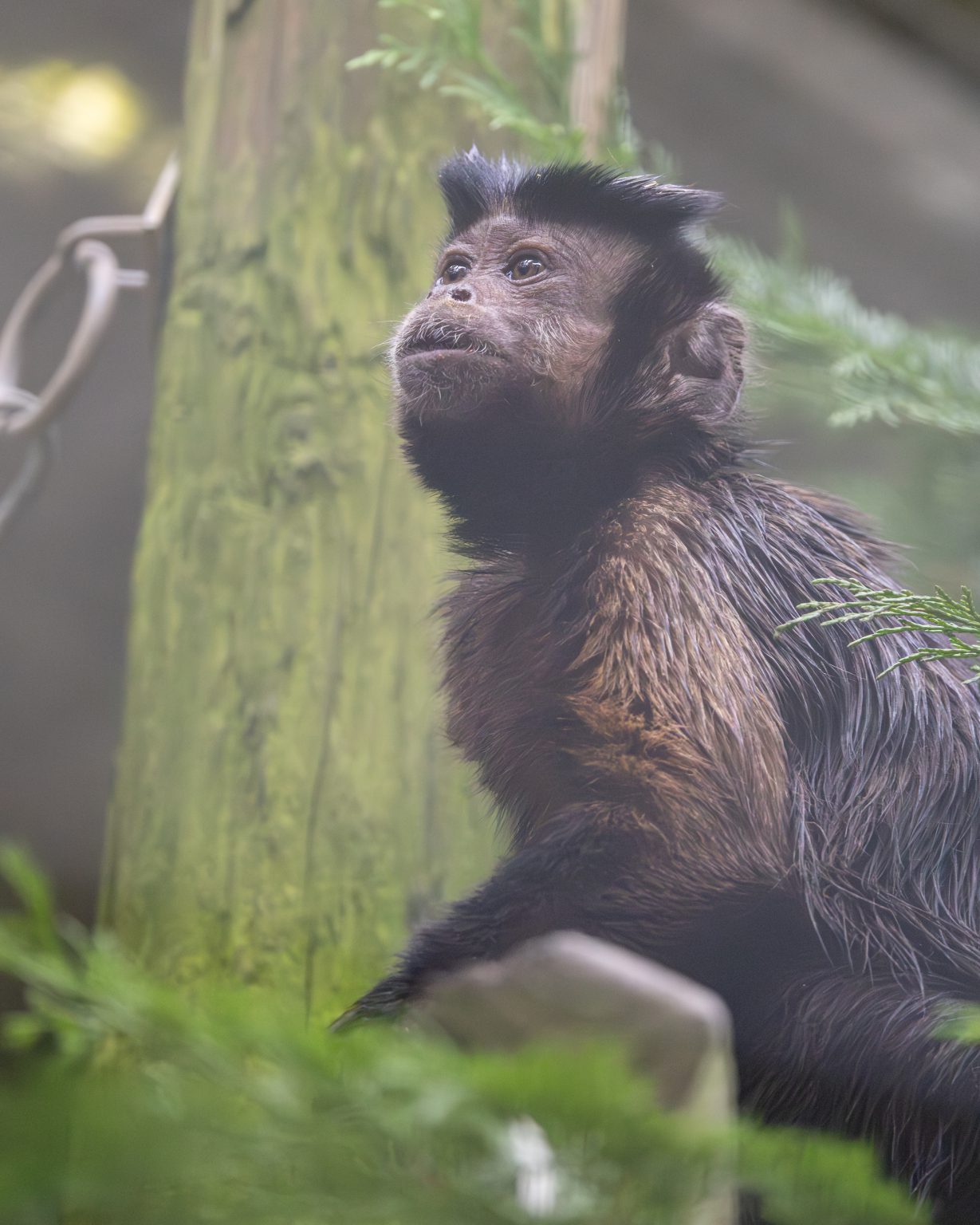Lily
Species: Woolly Monkey (Lagothrix lagothricha)
Who is she? The playful, mischievous one
Special skills: Spotting her carers from far away to get a treat!
Adopt Lily
- From: £3.00
- Select options This product has multiple variants. The options may be chosen on the product page
- From: £48.00
- Select options This product has multiple variants. The options may be chosen on the product page
ADOPTIONS ARE PURELY SYMBOLIC. WE DO NOT SELL PRIMATES AND WILL NOT OFFER ANY ADVICE REGARDING PURCHASING A WILD ANIMAL. By purchasing a symbolic monkey adoption, you are agreeing to our Terms and Conditions.
Species: Woolly Monkey (Lagothrix lagothricha)
Who is she? The playful, mischievous one
Special skills: Spotting her carers from far away to get a treat!
Lily was born on 18th October 2014 at The Monkey Sanctuary, but her birth was not exactly planned. As a GFAS (Global Federation of Animal Sanctuaries) accredited sanctuary, we have a strict non-breeding policy in place. Methods of contraception have always been chosen in a way that both minimises disruption to the natural politics of monkey groups, and that are the safest for the monkey themselves. But like in humans, no contraception is 100% effective, and Lily was born!
At the age of 22, Lily’s mother, Maya, was quite old when she gave birth to Lily. But despite this, and Lily being Maya’s only child, she did a fantastic job of caring for her and teaching her everything she needed to know.
The other woolly monkeys in their group were besotted with her from the moment she was born, and so when Maya then sadly passed away due to health problems when Lily was just 16 months old, Lily was happily taken on by all of the males in the group who cared for and protected her.
She is a very vibrant and active monkey with a fierce personality and a wonderful attitude to life.
Adopt Lily
- From: £3.00
- Select options This product has multiple variants. The options may be chosen on the product page
- From: £48.00
- Select options This product has multiple variants. The options may be chosen on the product page
ADOPTIONS ARE PURELY SYMBOLIC. WE DO NOT SELL PRIMATES AND WILL NOT OFFER ANY ADVICE REGARDING PURCHASING A WILD ANIMAL. By purchasing a symbolic monkey adoption, you are agreeing to our Terms and Conditions.



